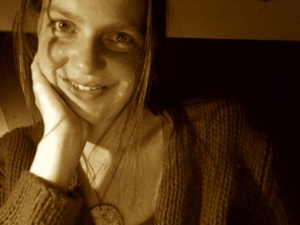That Fragile Moment
We are always at the beginning of things, in the fragile moment that holds the power of life….we are always at the morning of the world.
I often think of this quotation by the Chinese-born French writer François Cheng, but especially in the morning. This is indeed the most “fragile moment” for me as a writer. I love autumn because it means I can sleep with the windows open and wake up to the sounds of dawn: the cry of a blue jay or the jingle of our wind chimes.
This is the time when I feel most compelled to slip out of bed and into the pages of my journal. It’s paramount that I do so quietly, before waking the dogs and before the rituals of the day intrude, even breakfast.
Here, staring out the window at my desk, I can revel in the day’s first light, that gentle shaft of sunlight through the trees. Sometimes a deer will surprise me and we find ourselves staring at each other, transfixed, wondering who will look away first. When the window is open, I can hear the distant crow of roosters, even the salubrious moo of cows from miles away. This is when the gentle buzz of inspiration floods my senses.
This “fragile moment” is when I am able to conjure up the most creative metaphors for a poem or even finish a paragraph of prose that had troubled me the day before. New structures and themes for my work often reveal themselves now. I also am privy to a special kind of clarity that brings perspective. The work that is most pressing always emerges, and I gain the single-mindedness needed to finish it.
However, if just the tiniest sliver of the rest of the world emerges, say my husband J.P. rises and turns on the television or if a neighbor decides to roar down our common driveway, the spell is suddenly broken. Now I am lured too easily into other rituals, and my “fragile moment” slips away forever.
You may know this already, and you may be even more disciplined than me about seizing these precious nuggets of time, but if not, try it yourself. Climb out of bed early one day and ignore your normal to-do list. Go to your favorite writing perch, grab a notebook or your laptop, and let your imagination wander. You’ll be surprised at how much this “unstructured” time contributes to the larger plan. You may even experience a whisper of serenity, which will seep into the rest of your day, and make that to-do list of other tasks less daunting. Better yet, you may experience a creative rebirth and the power to begin again, every single day.
ABOUT ASHLEY: Ashley Memory’s fiction, essays, and poetry have appeared in numerous journals and magazines, most recently in The Independent, Poets & Writers, Wired and Real Simple. She has been nominated for a Pushcart Prize and has twice won the Doris Betts Fiction Prize. Her first poetry collection, Waiting for the Wood Thrush, was published in 2019 by Finishing Line Press.
JOURNAL WITH ASHLEY: Join Ashley for Fueling the Fires: Journal as Inspiration on October 12th, via Zoom. In this class, we’ll discuss the many options available for journaling as well as techniques for transforming these scribbles into polished stories, essays, or poems. Time will be divided between teaching, looking at examples, discussion, writing in class, and sharing. More information is here.


